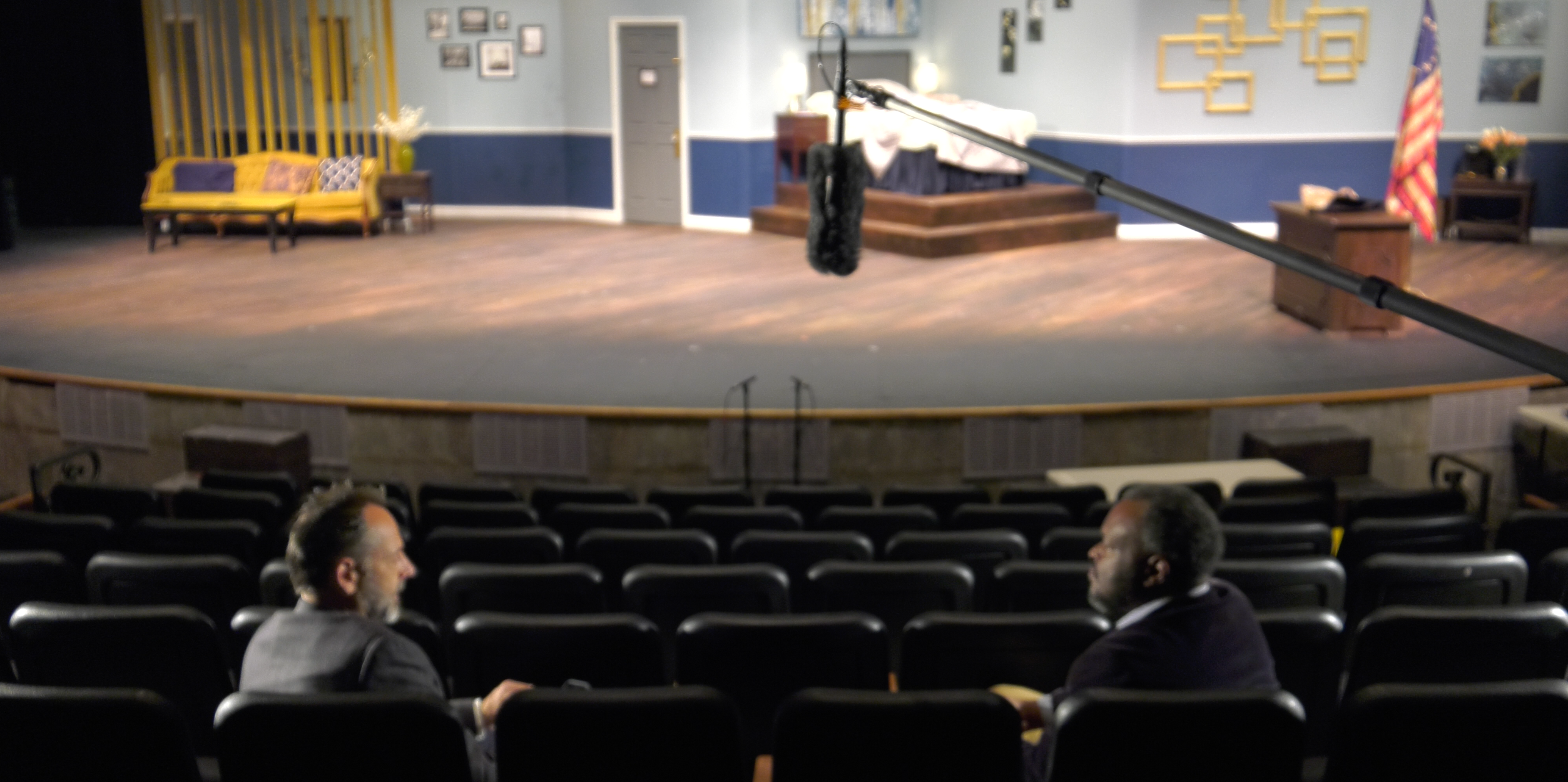StoryBoard’s Page One Workshops: Behind the Arts, started in October 2021 and continued through March 2022, was a multimedia journalism program that puts 10 storytellers directly in front of artists to capture intimate ‘behind-the-scenes’ looks into the creative process. Learners had the opportunity to observe, engage with, and interview professional creators in a host of locales and with a variety of collaborating arts organizations. Learners in turn were guided through the process of crafting a multimedia story for the online StoryBoard and its in-print publication and were paid for their completed work.
Meet the Storytellers.
About the Workshop
To provide these opportunities for learners, StoryBoard pre-arranged opportunities with local arts organizations, and learners either selected or were assigned to these projects with the organizations, attended the organization’s planning or strategic meetings, interviewed or engaged with artists, or sat in on select rehearsals.
For the workshops, mentoring, coaching and training were be provided by two instructors, led learners through the multimedia storytelling process in a 9-session workshop with an emphasis on writing,
with compliments from theirs or other visual contributions in drawings and sketches, photography and short videos.
“The journalist today needs to have more than reporting and editing skills,” said Ron Wiginton, of Elmhurst University. “From blogs to video production, the media landscape demands that journalists be prepared to present stories in print and cyberspace.”
An April 2021 report from The Kresge Foundation showed that “place-based arts and cultural practices, or creative placemaking, can help grow social cohesion to encourage community well-being.” Said Arts Endowment Chairman Ann Eilers: “As we climb out of COVID-19 and focus on equitable recovery, this need is greater than ever.”
And said Regina Smith, managing director of Kresge’s Arts & Culture Program, “During these unprecedented times, we strongly believe that artists and creative practices can help us reckon with the past and pave the way to a more racially just and equitable recovery.”
The Behind the Arts Page One Workshop was designed to marry multimedia journalism to the above essential concepts, and, by inviting the audience into the creative process, to shine new and intimate spotlights onto our local arts, raise awareness of local arts organizations, and foster the needed social cohesion, equitable recovery and community well- being as cited by Kresge.
Writing topics covered in these workshops included interviewing skills, story structure, editing and publication, and the use of visual arts to compliment stories.
Community Engagement
StoryBoard has made great efforts in fostering collaborations with a host of arts organizations for the workshop. With the efforts, these organizations are opening their doors and stand at the ready to invite storytellers into the passions and people that make their art happen.
To-date**, they include: Playhouse on the Square, the Stax Music Academy, the Metal Museum, Paint Memphis, Arrow Creative, and the Memphis Filmworks documentary project Our Neighbors. Adult learners and budding storytellers from all over the Memphis area will be sought for their interests and skills, and students from Christian Brothers University, the University of Memphis and Rhodes College will be invited to participate.
Also, a select group of learners from Literacy Mid-South will be participating in a collaborative storytelling effort. Through this collaboration, adult learners new to the English language and new to writing will collaborate on a group narrative focusing on their unique and authentic experiences. Instructors from Literacy Mid-South will co-facilitate these collaborations under the direction of StoryBoard’s Page One Workshop, and the finished story will be published as part of the workshop by StoryBoard.
Goals and Outcomes
Upon completion of the workshop, each storyteller – and the Literacy Mid-South collaborative – will have a multimedia story ready for publishing. “Publishing” includes multiple platforms: in-print, on the StoryBoard website, and on social media.
The goals and potential impact of this workshop are multi-pronged. With this workshop, we intended
to raise public awareness of the societal and equitable contributions of the collaborating arts and educational organizations. We hoped to raise the bar as to the power of intimate and empathic storytelling in changing narratives and perceptions in a divided world. We hoped to share with our community the hard work, passions and rewards of a career and a life the arts can provide. We hoped to remind the community at large of the real economic benefits of a local economy built around arts programming.
How will we know we are successful?
For a project like this, success is defined by both the impacts on the learners and the collaborating arts organizations: learners’ success by their finished works, by the measured audience engagement with the published stories, and by the learners’ career and any future work; arts organizations’ success by the measured audience engagement as a direct result of the published works (i.e. clicks to arts websites, spikes in ticket sales, increases in subscribers, etc.).
Thank you to the Tennessee Arts Commission’s Arts Build Communities grant program for providing funding for this program.

